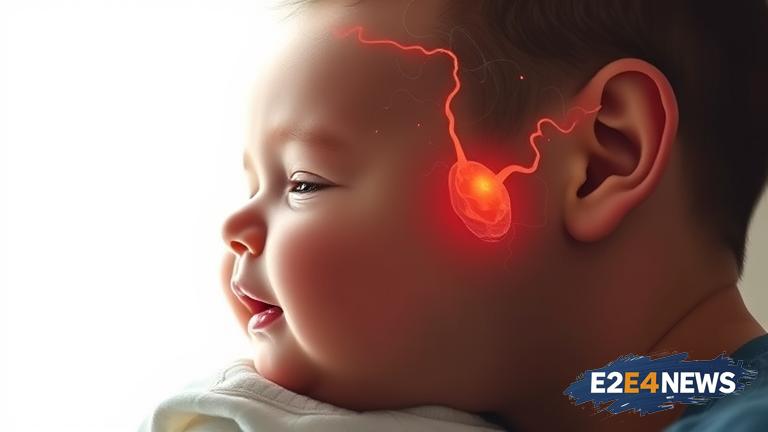A recent study published in the field of neuroscience has made a groundbreaking discovery about the brain activity of new fathers. When new dads see their babies, their brains light up in surprising ways, revealing a complex and multifaceted neural response. The study used functional magnetic resonance imaging (fMRI) to scan the brains of new fathers while they interacted with their newborns. The results showed that the brains of new dads exhibit a unique pattern of activity when they see their babies, which is distinct from the brain activity of non-fathers. The study found that the brain regions involved in emotional processing, social cognition, and reward processing are particularly active in new fathers when they see their babies. This suggests that the brain is wired to respond to the presence of a newborn in a way that is both emotional and social. The researchers also found that the brain activity of new dads is similar to that of new mothers, suggesting that the neural basis of parental bonding is shared between the two sexes. The study’s findings have important implications for our understanding of the neural basis of paternal bonding and the role of fathers in childcare. The researchers believe that their study could help to promote a greater understanding of the importance of paternal involvement in childcare and the need for greater support for new fathers. The study’s lead author noted that the findings highlight the need for a more nuanced understanding of the complex and multifaceted nature of paternal bonding. The study’s results are based on a sample of new fathers who were scanned using fMRI while they interacted with their newborns. The researchers used a range of tasks and stimuli to elicit different emotional and social responses from the new dads. The study’s findings are consistent with previous research on the neural basis of maternal bonding, which has shown that the brain regions involved in emotional processing and social cognition are active in new mothers when they see their babies. The study’s results also suggest that the brain activity of new dads is influenced by a range of factors, including the quality of the father-child relationship and the level of paternal involvement in childcare. The researchers believe that their study could have important implications for the development of interventions and support programs for new fathers. The study’s findings are also relevant to the broader debate about the role of fathers in childcare and the need for greater recognition of the importance of paternal involvement. The researchers noted that their study highlights the need for a more nuanced understanding of the complex and multifaceted nature of paternal bonding and the importance of supporting new fathers in their role as caregivers. The study’s results are also consistent with previous research on the importance of early paternal involvement in childcare, which has shown that fathers who are more involved in childcare tend to have better outcomes for their children. The researchers believe that their study could help to promote a greater understanding of the importance of paternal involvement in childcare and the need for greater support for new fathers. The study’s findings have also been welcomed by campaigners who are seeking to promote a greater recognition of the importance of paternal involvement in childcare. The study’s results are a significant contribution to the field of neuroscience and have important implications for our understanding of the neural basis of paternal bonding. The researchers are now planning to conduct further research on the neural basis of paternal bonding and the role of fathers in childcare. The study’s findings are also relevant to the development of policies and programs aimed at supporting new fathers and promoting greater paternal involvement in childcare. The researchers believe that their study could help to inform the development of more effective interventions and support programs for new fathers. The study’s results are a significant step forward in our understanding of the complex and multifaceted nature of paternal bonding and the importance of supporting new fathers in their role as caregivers.
